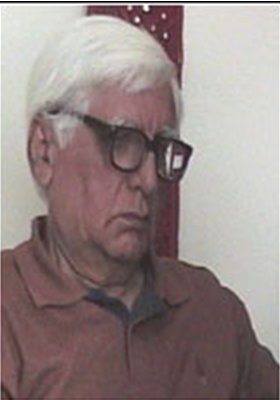Ghulam Moheyddin Moonas Naqshi
This is a collection of articles archived for the excellence of their content. Readers will be able to edit existing articles and post new articles directly |
Ghulam Moheyddin Moonas Naqshi
Ghulam Moheyddin Moonas Naqshi was a mystic and like Sufi poets, he exhorts his audience to live their lives without hurting anyone’s feelings. He believed in the higher values of life and always reminded readers of the hereafter where one will have to answer for their deeds.
Born in 1904 in Amritsar, Ghulam Moheyddin Moonas Naqshi became a poet after he came into contact with many giants of Punjabi literature. At the time, conditions were very conducive for literary pursuits. Lahore and Amritsar were the centres of Punjabi poetry and legendary writers like Ustad Ferozuddin Tughrai, Mauala Baksh Kushta, and Imam Din Sokhta did everything to promote new writers.
It is pertinent to note that Sufi Ghulam Mustafa Tabbasum was also a pupil of Ferozuddin Tughrai. Naqshi too sat at the feet of a teacher Ghulam Muhammad Tarannum and honed his skills in Punjabi poetry.
An extremely introvert soul, Naqshi was a carpet weaver by profession and he had to face a tough time after Partition due to financial constraints. It was his friend Munir Ahmad Tariq who got his slim book published in 1959. Zarb-i-Hussain was the title of the book in which Naqshi paid homage to Hazrat Imam Hussain and his disciples who gave great sacrifices at Karbala. In 1960 Naqshi died after a protracted illness and thus the chapter of his his life drew to a close.
He used to jot down his verses in diaries which were lost after his death. Now, after many decades, his son has managed to lay his hands on a few moth-eaten diaries of his father. The son, Dr Rasheed Amjad, who is a celebrated Urdu short story writer, decided to get the contents of the diaries published. Thus the book Naqsh-i-Khayal was born.
As one goes through his high quality Punjabi verse, it becomes apparent that Naqshi was a mystic. Just like Sufi poets, he exhorts his audience to live their lives without hurting anyone’s feelings.
He believed in the higher values of life and always reminded readers of the hereafter where one will have to answer for their deeds. Dr Gohar Naushahi has written an informative introduction to the poetry of Naqshi. He has really made the matters easier for the readers by familiarising them with the author.
Naqsh-i-Khayal should be read by all lovers of Punjabi as it contains some fine Punjabi ghazals. Dr Rasheed Amjad has paid a true tribute to his father by having his lost poetry published.
Kahani Paraga By Nadir Ali Suchet Kitab Ghar, Lahore 290pp. Rs200
